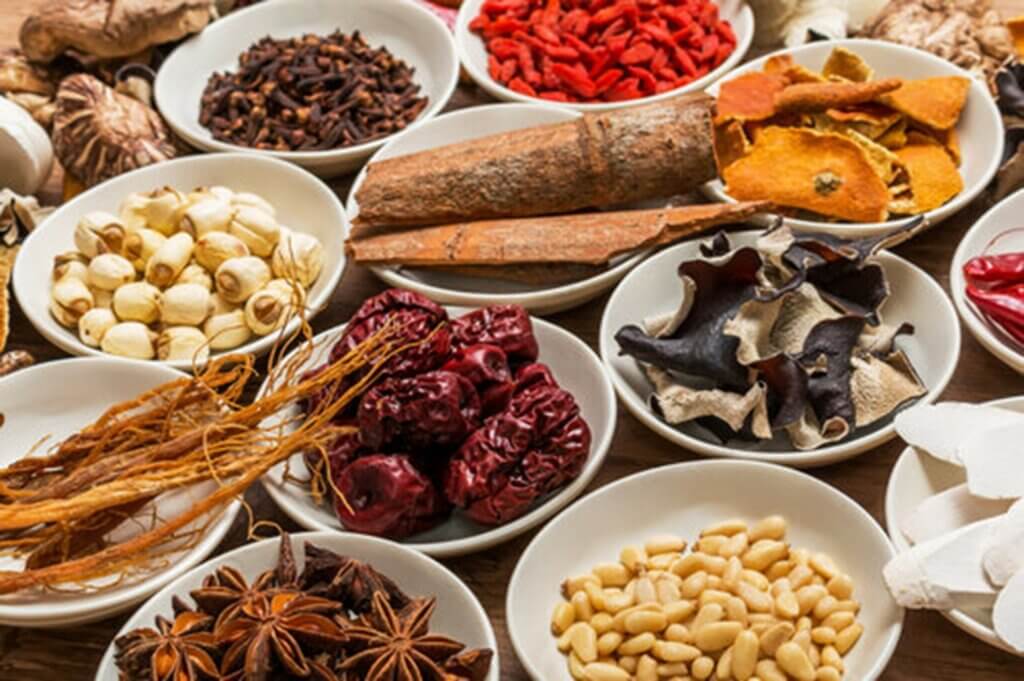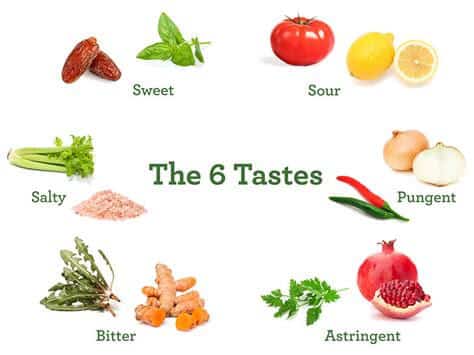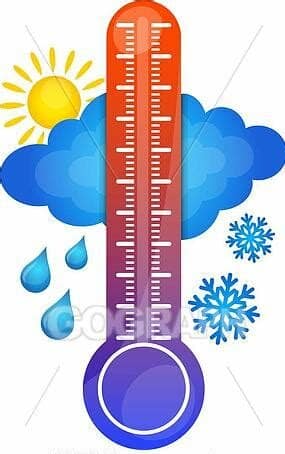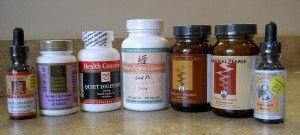
What is Chinese Herbal Medicine (CHM)
Although Acupuncture is the practice most associated with Traditional Chinese & East Asian Medicine (TCEAM) here in the West, the Chinese herbal tradition goes back thousands of years with extensive texts that detail the presentation & treatment of both internal & external medical disorders. Chinese Herbal Medicine (CHM) is traditional, yet through research on individual herbs & formulas, it continues to evolve & prove to be a valuable source of medicine.
It is a sophisticated system of health care that focuses equally on the prevention of illness and its treatment. It uses the same diagnostic and treatment principles as Acupuncture & can be used alongside acupuncture or in isolation to treat an individual’s constitution, presenting signs/symptoms & underlying causes of illness/imbalance. For over 2,500 years CHM has been used to treat many conditions involving the respiratory, cardiovascular, nervous, skeletal, muscular, digestive, urogenital, reproductive, endocrine & immune systems.
To schedule an Herbal Medicine consultation, please contact Jess directly at 410-562-2051 or by email at jess@jessfaulkner.com
CHM Rates: Chinese Herbal Medicine Services
Chinese Herbs: Plant, Mineral, Animal
There are more than 450 medicinal substances in the Chinese Materia Medica. They are largely of plant origin, but also include some animal and mineral-based substances. Unlike most medications used in Western medicine, Chinese herbs are highly unlikely to produce undesirable side effects when properly administered. They are also entirely non-toxic and free from chemicals when sourced from reputable suppliers like the ones I use.
The majority of Chinese herbs are vegetable based: foods, spices, nuts, seeds, fruits, roots, berries, leaves, flowers, stems, rhizomes, and barks are some of the many vegetable parts used. Plants contain a diverse chemical complexity that makes them so useful as medicine. Chinese herbal formulas are designed as multi-herb combinations. This approach takes advantage of the multiple compounds found in each herb, that when combined together produce an enhanced & specific therapeutic effect.
Chinese Herbal Medicine vs. Western Herbal Medicine
Western herbalism primarily treats symptoms, such as headaches, runny nose, stomach pain, etc. with a single herb/medicinal. A single herb (e.g. St. John’s Wort) is used to treat a specific sign or symptom (e.g. depression).
The practice of CHM involves combining herbs to create a unique herbal formula for an individual that is presenting with signs & symptoms in a particular manner. Treatment is based on an individualized pattern diagnosis. The specific pattern is made up of all the signs and symptoms a person is experiencing including emotional well-being, and body constitution. Chinese medicine recognizes that no two people manifest the same pattern of signs & symptoms and therefore cannot be treated with a one size fits all approach.
For example, if Patient A’s migraine is due to stress, and Patient B’s migraine is due to insomnia, they will be prescribed different formulas even though they have the same basic complaint. CHM considers an individual’s constitution, particular signs/symptoms & underlying root causes of those symptoms when designing a unique herbal formula.
Diagnosis in TCEAM
Mastery of Chinese Herbal Medicine is incredibly intricate. It involves the knowledge of hundreds of herbs and classical herbal formulas. To get a clear picture of what is going on with a particular patient, a Chinese herbal practitioner will ask many questions about past/present physical & emotional symptoms, listen to the pulse & look at the tongue. With all these details, they will discern a complex pattern of imbalance, make a differential diagnosis & match the complexities of the patient’s constitution & the nature of imbalance with an appropriate herbal formula.
For example, if 7 people are struggling with headaches, each of these people will have different presentations: location of the pain, duration of the pain, nature of the pain, triggers for the headaches, different things that create relief or worsening of the symptoms, and more. In addition to the difference in manifestation of the headache, each person’s other signs and symptoms will be different as well. The TCEAM practitioner takes all of these things into consideration, crafting a different/unique custom blend of herbs for each person, ensuring that the formula matches the presentation of imbalance/condition as well as the constitution.
This thorough process of deliberation is required to treat each person safely & appropriately.
Herbal treatment process
The herbal prescription/formula is adjusted and modified as your symptoms change over time. Adjustments to the herbal formulas are common and will correspond to your reaction/response to the herbs. Depending on your particular ailment, and how well your body is responding to treatment, CHM treatment may take a few weeks or months to be fully effective.
Herbal Treatment Stages
There are three stages to wellness
- The first is symptomatic care, in which your TCEAM practitioner focuses on alleviating your main & secondary symptoms.
- The second is corrective care, in which they target the underlying cause of illness/imbalance.
- The third is prophylactic care, when your practitioner prescribes formulas to strengthen your immune system and enhance normal function for general health maintenance and disease prevention.
Results with Chinese Herbal Medicine
In acute cases, results can be seen within a 1/2 a day to 3 days. In chronic conditions, results should begin to be seen within 2-3 weeks, although many chronic conditions may require taking CHM for a longer period of time (3-6 months) to achieve the desired result.
Conditions Treated with Chinese Herbal Medicine
Chinese herbs provide natural remedies for the common cold, flu, allergies, digestive disorders, stress, anxiety, pain, menstrual disorders, insomnia, constipation, diarrhea, acid reflux, and much more!
- Abdominal Pain
- Acid Reflux
- Acne
- Addiction
- ADD/ADHD
- Allergies
- Anxiety
- Arthritis
- Autoimmune
- Back Pain
- Bowel Issues
- Colds/Flu
- Constipation
- Cough
- Depression
- Digestive Issues
- Eczema
- Eye Health
- Fatigue
- Fertility
- Hair loss
- Hormonal issues
- Headaches/Migraines
- High Cholesterol
- Herniated Disk
- Hot Flashes
- Hypertension
- Impotence
- Insomnia
- Irregular Menstruation
- Joint Pain
- Kidney Stones
- Men’s Health
- Menopause
- Mood Disorders
- Muscle Spasms
- Neuropathy
- Night Sweats
- Neck Pain
- Osteoporosis
- Pain Management
- Peri-Menopause
- PMS
- Poor Memory
- Pre/Post Surgery
- Psoriasis
- Restless Leg Syndrome
- Sciatica
- Skin Conditions
- Shoulder Pain
- Stress
- Trigeminal Neuralgia
- Urinary Health
- Women’s Health
Taking your herbs & what to expect
~ Unlike prescription medications, properly prescribed Chinese herbal formulas should not cause persistent or severe side effects. As you get started with taking CHM here are a few things to keep in mind:
~ Unless you are directed otherwise, it is ideal to take herbs on an empty stomach with a cup of warm water.
~ It is more important, however, to be consistent about taking all your prescribed doses than it is to time your doses around meals. For example, if you have been told to take two doses per day but you find yourself frequently missing your second dose because you don’t think to take your herbs when your stomach is empty once you leave the house for the day, it is better to take your herbs with meals and not miss doses.
~ It is not uncommon to experience some digestive disturbance for a few days after starting herbs. This may include mild upset stomach, loose stool, constipation, mild bloating, and/or gas. These side effect almost always resolve after a few days as your digestive system adapts to the herbs. If you continue to experience any of these side effects, try taking your herbs with meals as opposed to on an empty stomach and/or reducing your dose slightly for a few days.
~ It is not unusual for women to experience slightly heavier periods for a few months after starting herbs. This may also include a change to the appearance and/or texture of the menstrual flow. This is because the herbs are actually causing the uterus to be more thorough in shedding its lining and is a positive sign.
Side Effects That Should be Reported
On rare occasions, herbs will cause side effects that are a sign that the prescription needs to be adjusted. If you experience any of these side effects, please alert your practitioner so that they can make changes to the herbal formula:
~ New onset of hot flashes, night sweats, and/or sensations of feeling overheated.
~ More than a few nights of disrupted sleep.
~ Changes in mood (e.g., new onset of agitation, irritability, anxiety, etc.) that are persistent (longer than a week) and/or severe.
~ Digestive disturbance that is severe and/or persists for more than two weeks after starting herbs.
~ New onset of menstrual periods that are significantly heavier, more painful, or more or less frequent than normal.
Classical Herbal Formulas
Herbs are used in combination to enhance, accentuate, counteract or suppress common or opposing effects. The combination of herbs chosen work synergistically with each other and are tailored to the individual patient, targeting multiple signs & symptoms, the underlying root causes, as well as moderating any possible side effects of one particular herb. The synergistic effect of each of the single herbs together in a particular formula are greater than the sum of their individual value, which allows formulas to treat multiple ailments that may seem unrelated.
Mastery of Chinese Herbal Medicine is incredibly intricate. It involves the knowledge of hundreds of herbs and formulas. Many of the formulas used in CHM are ancient formulations, dating up to 2000 years old. In modern practice these classical formulas are modified, depending on the patient’s unique constitution and individual signs & symptoms.
There is a general hierarchy present for the herbs in each formula:
The Chief Herb – This is the most important ingredient of the formula and has the greatest effect on the principal pattern or main complaint.
The Deputy Herbs – These herbs target secondary complaints but also assist the Chief Herb in the treatment of the main pattern.
The Assistant Herbs – These herbs enhance the effects of the Chief herb or Deputy herbs, directly treat a less important aspect of the pattern and moderate any unwanted effects from the Chief or Deputy herbs.
The Envoy Herbs – These herbs guide the action of the formula to a particular region of the body and harmonize the actions of the other ingredients.
As you can see, the construction of an herbal formula is complex.
Traditional Chinese Herbal Medicine is Unique

Each herb has a specific Taste Attribute which has certain actions/functions in the body:
Sweet – Tonify deficiencies, Harmonize and Moderate
Acrid/Pungent – Release the exterior, Disperse outwards, Move Qi & Blood
Sour – Stabilize & Bind, Reduce or prevent the loss of body fluids
Bitter – Sedate heat, Purge fire, Drain downwards, Dry dampness
Salty – Purge excess, Soften hardness, Scatters lumps
Bland – Drain downwards, Leach out dampness, Promote urination
Each herb has a Thermal Property

Herbs have a temperature: Cold, Cool, Neutral, Warm, Hot
When approaching treatment, a TCEAM practitioner must determine the thermal nature of the signs/symptoms an individual is presenting with & choose appropriate herbs to match the patient’s pattern. Many classic texts state “Cool diseases must be warmed & Hot diseases must be cooled”. An herbalist will ask many questions that help to understand your body’s thermal nature.
Each herb has a Direction in the body
Each herb has its own directional characteristics. For example, flowers & rapidly growing plants tend to carry lighter, upward moving energy, while substances found deeper in the earth, such as roots or minerals, often possess heavier, or downward bearing energy. The direction of an herb will help to counteract a particular direction of a disorder or can be used to guide to a specific area of the body.
Types of Herbal Formulas


There are several ways to dispense Chinese herbal formulas. The patient and practitioner decide together which form is best. Below are the available forms an herbal formula can take:
Teas: Also known as decoctions, these are prepared in pot with raw Herbs/Medicinals and boiling water.
Granules/Powders: Are highly concentrated powdered extracts that were developed as an alternative to decoctions. Granules are popular because of their ease of preparation and their portability when traveling. They can be mixed with warm water to make a tea or can be ingested directly.
Capsules/Tablets: These can be raw ground herbs or granules/powder extracts that are made into capsules or tablets.
Syrups: This formulation has the addition of sugar to a liquid herbal decoction & can be beneficial for soothing coughs and sore throats. It can also be an easier way to deliver herbal medicine to children.
Tinctures: These are concentrated liquid herbal extracts, made by steeping fresh or dried herbs in alcohol. Alcohol is used in order to break down the cell wall of the plant, allowing the plants bio-active compounds to be released and stored into the alcohol.
Safety of Chinese Herbs
CHM is safe when it is administered under the supervision of a professionally trained TCEAM Herbal practitioner & as long as you follow the instructions as closely as you can, there should be no serious side effects. It is important that you inform your practitioner of any medicines or supplements you are taking during your initial consultation to avoid unwanted interactions. You also want to inform your practitioner about any existing allergies you have to any foods, plants, minerals or herbs, to ensure the formula prescribed to you will not contain any allergens.
Finding a professionally trained in Chinese Herbalist
The National Commission for the Certification of Acupuncturists & Oriental Medicine (NCCAOM) has created a certification process for Chinese Herbal Medicine. TCEAM practitioners who have passed this certification process are entitled to add the abbreviation Dipl. C.H. for Diplomate of CHM after their name. A prospective patient should feel free to ask about the training and credentials of the practitioner. Find a Practitioner Directory | NCCAOM
Chinese Herbs: Food Supplements
Chinese herbs and herbal formulas produced in the U.S. are classified as food supplements, not as drugs. This means that they are not strictly regulated by the Food and Drug Administration (FDA), besides ensuring the cleanliness of the facilities in which they are manufactured. For imported herbs, the FDA monitors the ingredients to certify that no toxic herbs are used.
To schedule an Herbal Medicine consultation, please contact Jess directly at 410-562-2051 or by email at jess@jessfaulkner.com
CHM Rates: Chinese Herbal Medicine Services – Jess Faulkner – Acupuncture & Asian Bodywork Therapy

Health is not just the absence of symptoms, it is being in state of balance ~ of Mind, Body & Spirit
The body/mind should be viewed as a whole, where our different organ systems, functions and process work together to keep homeostatic balance. By promoting the natural stimulation and inhibition functions of the organ systems, Traditional Chinese & East Asian Medicine (TCEAM) encourages nourishment, repair and maintenance of the whole body, mind and spirit.




 My path to oriental medicine came through my experience with massage & bodywork. For over 20 years I have been studying and practicing massage therapy, but it was when I discovered Shiatsu (acupressure), that I realized there was something very powerful about Chinese Medicine…
My path to oriental medicine came through my experience with massage & bodywork. For over 20 years I have been studying and practicing massage therapy, but it was when I discovered Shiatsu (acupressure), that I realized there was something very powerful about Chinese Medicine…